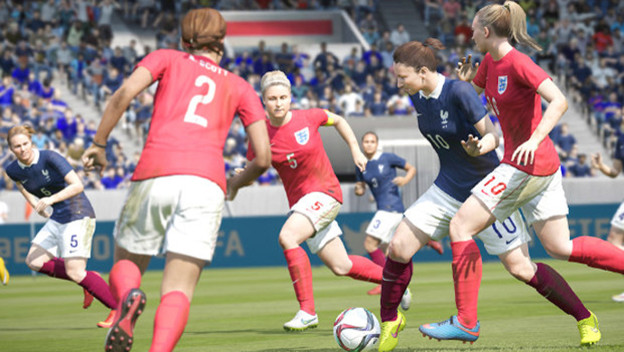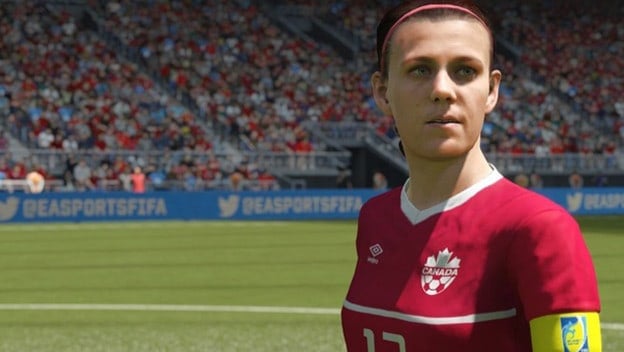The three-headed monster that is the National Collegiate Athletic Association reared its ugly head once again by demanding EA Sports remove 13 women from FIFA 16 ’s all-new Women’s National Team feature. The NCAA recently threated the eligibility of the 13 top ranked women’s players that were set to debut in FIFA ’s landmark offering if EA Sports didn’t remove their likeness completely. EA conceded and the long reach of the NCAA was on full display once more.
EA Sports doesn’t quite seem to agree with the NCAA’s decision, since it quietly released a statement last week regarding the threats via the publisher’s main web site. “All rights were secured following standard protocol with national governing bodies and federations, and none of these NCAA student-athletes or potential student athletes were to be individually compensated by EA SPORTS for their inclusion in the game.” Not only was this press release an indication that EA went through the proper channels to acquire the authorization of the player’s likeness, which indicates they knew what was potentially on the horizon, but it also shows the clear gap that exists between student athletes and the multimillion-dollar organizations that continue to profit off their efforts.
It’s no secret that the NCAA has been extorting its entire consortium of student athletes since the dawn of time. In fact, the term “student athlete” is only a front in order to milk these young adults for all they’re worth. Think about March Madness for a moment and all the hype generated by the media when this awesome spectacle makes its way into town. There are hundreds of commercials, thousands of tickets sold, merchandise at every corner, and just an overall butt-load of money being made during this time.
In the real world, the athletes that are providing the entertainment would get a portion of the millions of dollars made from the series of events – look at boxing, for example. Of course, you would need to deal out some cash to the handlers in between and the countless organizations that help put on an event like the college basketball tournaments, but at the end of the day, these athletes would typically get a sizable chunk of the profits. Instead, NCAA athletes get a free undergraduate college degree, which isn’t worth much these days, and the opportunity to potentially play professionally – sounds like a rock-solid deal, eh?

The NCAA is clearly at fault in this particular example, and several others within the past, but EA Sports shouldn’t get a free pass with this one either. Yes, the inclusion of women in FIFA 16 is long overdue and an awesome feature for both men and women alike to enjoy. However, the publisher’s biggest argument to justify its quarrel with the NCAA is that “none of these NCAA student-athletes or potential student athletes were to be individually compensated by EA SPORTS for their inclusion in the game.” So you want to use the athlete’s likeness, which will drive more people to buy the game and result in more revenue, but you won’t be paying them for their likeness? That kind of sounds like extortion to me, or at least white-collar robbery in some sense. Now, I understand EA’s stance – they’re just trying to walk the fine line of the NCAA and I’m sure they would compensate the athletes if they could. However, at the end of the day, they are still making a profit off someone who won’t be compensated, or at least attempting to.
It’s not entirely EA’s fault and part of me can’t help but think that their plan to provide these additional 13 players came from a pure and righteous idea – I think they were simply trying to add an extra feature for the female FIFA fan rather than taking advantage of a broken system. Unfortunately, they still went along with it, which only adds to ever-growing problem of extorting college athletes. Nevertheless, at the end of the day the NCCA continues to have free reign over its athlete population because no other competitive platform exists in the US today. The way to correct the messy situation is to either pay the athletes for their likeness and their athletic contributions as a whole, or continue to disband the use of them altogether – including in commercials, merchandise, and video games as well.
